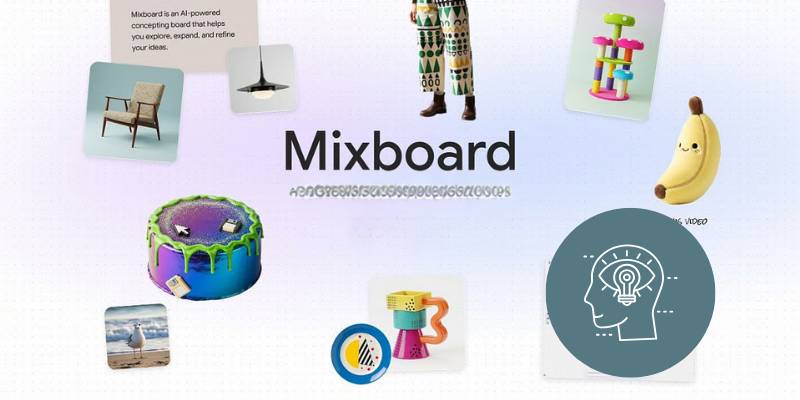Google has launched Mixboard, an AI-powered mood board app designed to challenge Pinterest and similar creative platforms. The tool, currently in public beta via Google Labs in the U.S., enables users to generate and remix collages using simple text prompts rather than manually hunting for images.
Unlike traditional digital mood boards, Mixboard taps into Google’s Nano Banana model, letting users request fresh images, tweak existing designs, or even spin off variations for exploration.
It’s like having a brainstorming partner that doesn’t get tired of endless “what if we tried this instead?” requests. This marks a continuation of Google’s strategy to integrate generative AI into consumer-facing creativity tools, building on recent rollouts inside Chrome with Gemini.
The app isn’t just about pretty boards. It supports editable captions, layout suggestions, and collaboration spaces where ideas can evolve quickly. If you’ve ever wasted hours scrolling Pinterest for that “perfect vibe,” this could be a game-changer.
At the same time, skeptics wonder how it stacks against competitors like ByteDance’s Seedream 4.0, which has also been flexing its generative muscle in the image space.
Interestingly, Google is fostering a Discord community for Mixboard users to swap boards and feedback.
That social angle might help it carve a niche, much like how Perplexity recently leaned into community-driven testing. It’s less about replacing platforms outright and more about reshaping how people ideate visually.
Of course, there are bigger questions floating around. Will professionals—designers, marketers, creatives—actually adopt it as part of their workflow?
Or will it remain a novelty for casual users? With Microsoft testing new AI features through Windows AI Labs, the competition for creative attention spans is heating up.
From my perspective, Mixboard is clever because it removes the friction of curation and adds spontaneity. You don’t start with a blank board—you start with a prompt, and the AI throws you sparks to build from.
That immediacy could make the creative process less daunting and more playful. But whether it truly rivals Pinterest? That’s going to depend on how sticky the community and outputs feel once the novelty wears off.

